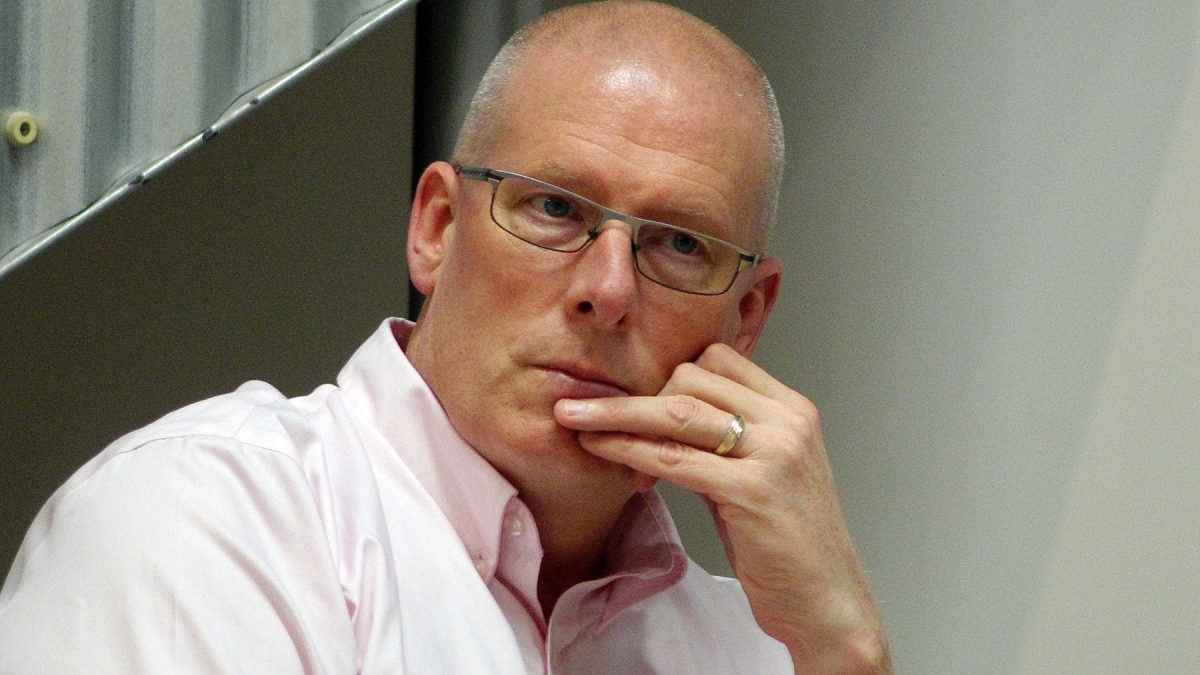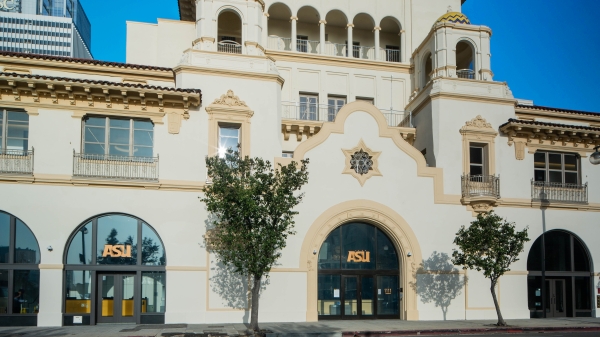ASU director delivers inaugural address on 'The Constitution of Innovation'
Professor Ross Emmett defends 5 claims about innovation to kick off series 'Perspectives on Economic Liberty'

Ross Emmett, director of the Center for the Study of Economic Liberty.
Last spring, Arizona State University's School of Civic and Economic Thought and Leadership, in partnership with the W. P. Carey School of Business, welcomed Ross Emmett as the new director of the Center for the Study of Economic Liberty. The center is a hub for research and programs dedicated to evaluating the contribution of economic liberty to human prosperity and well-being.
Emmett says his vision for the center is not as a policy think tank, but rather as a unit somewhere between academic research and implementation.
"If you think of the production of knowledge as a triangle," Emmett said, "with academic research at the top, the translation of research via public intellectuals in the middle, and the various ways of implementing research in public policy at the bottom, then the center would sit somewhere in the space between the academic work and the public intellectual role.”
Emmett joined ASU from Michigan State University, where he taught political economy, political theory and constitutional democracy in James Madison College. His specific research interests are in the history of economic thought, and in particular, the work of Adam Smith, T. Robert Malthus, and Frank H. Knight.
The moment he arrived on campus, after adjusting to the absence of snow, Emmett began setting big plans in motion to rejuvenate the center. In addition to teaching in the School of Civic and Economic Thought and Leadership, Emmett and his team are developing exciting research tools, publications and a lecture series, beginning this fall.
For the next year or so, the center will focus on the overarching theme of "perspectives on economic liberty," beginning with a lecture series of the same name. Emmett says that using the expression “economic liberty” is a way of talking about freedom in markets, freedom of individual choice and action, and the rule of law.
“The purpose of the series is to consider the cases for and against economic liberty, how it fits or doesn't fit with political liberty, and to ask, is one prior to the other, or are they companions?
“In these lectures, we will explore social and cultural issues around economic liberty as well as policy questions related to issues like trade and loss of jobs, minimum wage, right to work, labor regulation, and occupational licensing," he said. "These are all considerations of the benefits and potential costs in a world that accepts economic liberty.”
Emmett will kick off the series with a lecture on “The Constitution of Innovation,” in which he defines "constitution" not as a set of rules and processes, but as an environment in which systems can operate interdependently.
“Americans tend to think of ‘constitutions’ as pieces of paper that defend rights and define political processes," Emmett said. "The British tradition of constitutional analysis is more ecological: Winston Churchill compared it to daily exercise, which ensures that the various systems in our bodies function well together. FA Hayek had the British constitutional tradition in mind when he titled the only book he wrote while in America, "The Constitution of Liberty." There he argued that economic liberty undergirded economic progress because it created a societal constitution that encouraged Smithian innovation. Hayek worried that we might be about to lose that constitutional perspective. For a time, from about 1980 until the last few years, I argued that he was wrong. But perhaps we have reason to worry again. Willful disregard for the Smithian tradition threatens once again to undo a healthy constitution of innovation.”
Emmett’s talk takes place at 4:30 p.m. Aug. 23, in West Hall, room 135. RSVP here. The next two events in the series are talks by Tony Gill: "An Economic Defense of Tipping" and "Religious Freedom and Economic Liberty."
More Law, journalism and politics

ASU Law students gain vital experience through Los Angeles location
Students at the Sandra Day O’Connor College of Law at Arizona State University may be concentrated in the school’s downtown…

Where AI and property law intersect
Artificial intelligence is a powerful tool that has the potential to be used to revolutionize education, creativity, everyday…

Distinguished filmmaker to focus on media in Indigenous communities at ASU Cronkite School
By Lauren Boykins Renowned documentary filmmaker Marcos Colón will join Arizona State University’s Walter Cronkite School of…